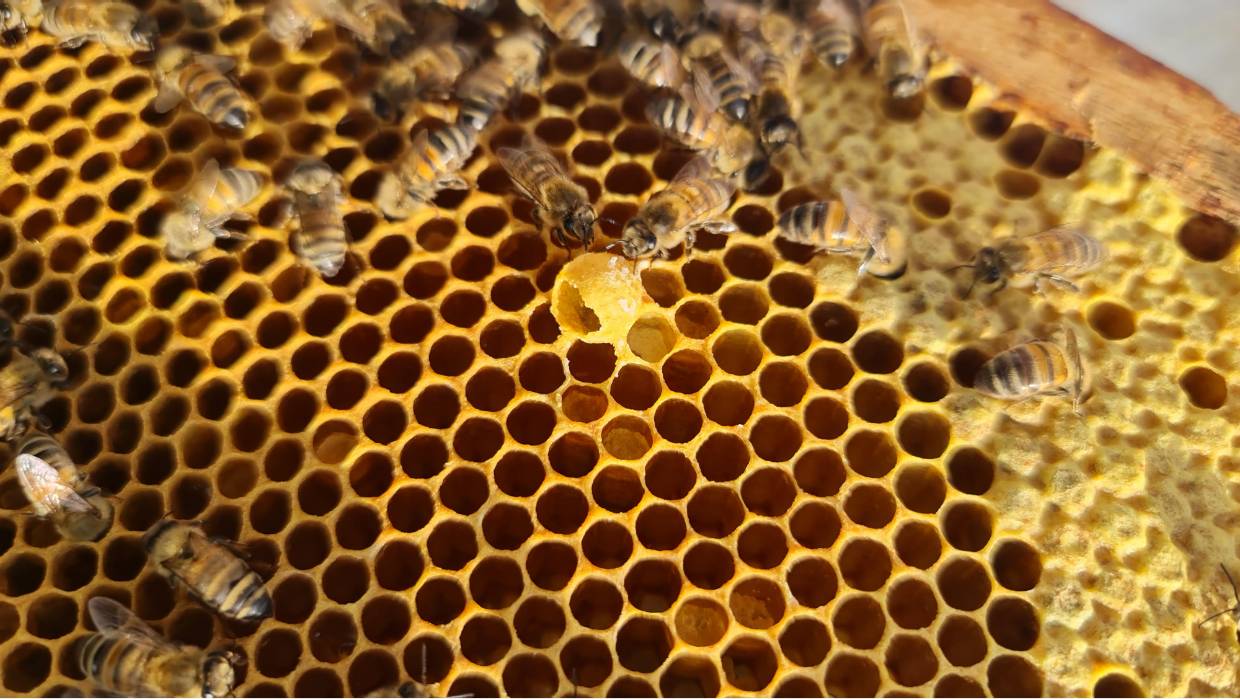

Honey by de Buedemleër
14 july 2022
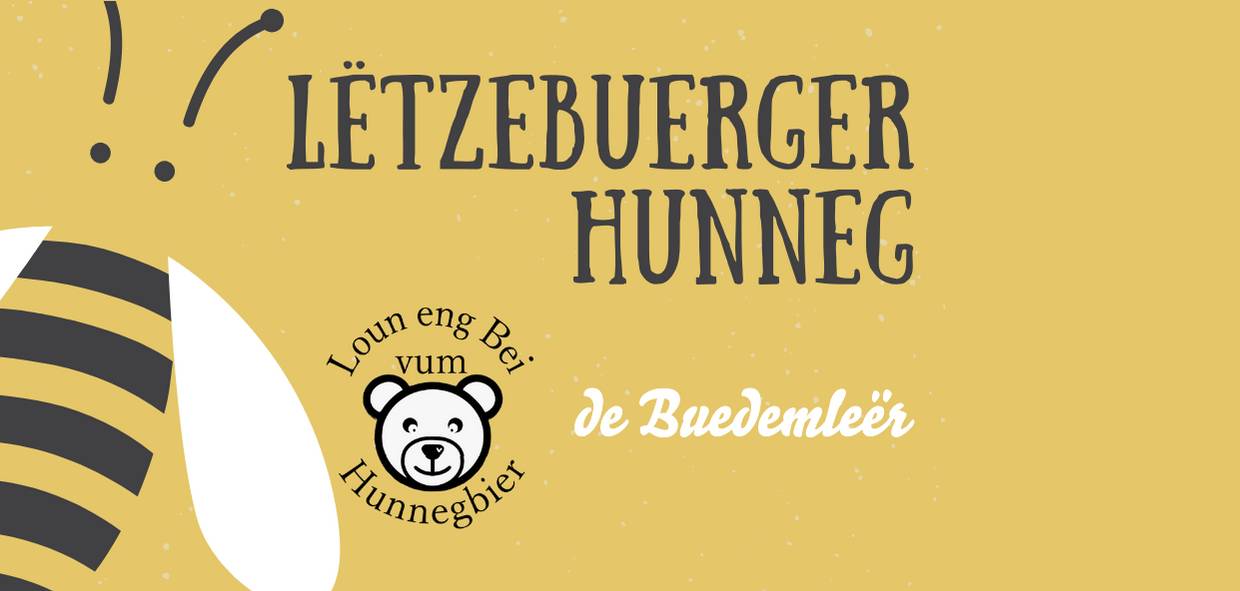

We care about nature!
When Den Hunnegebier launched an appeal for his project “loun eng Bei” (rent a bee) in early 2022, we reacted immediately. We thus became the first partner of this beautiful initiative that the Guirsch family (beekeepers since 2018) has initiated in Luxembourg.
So we rented a hive and had it installed in the garden of the Guirsch family in Oberpallen.
We preferred to leave the hive on the land that the Guirsch family has set up for this purpose because it is more convenient for them to take care of it. Indeed, the hives require frequent visits to ensure the good health of the colony which lives there, and the Zone Artisanale of Ehlerange, where our company is located, is not the most appropriate place for our friends the bees.
Nevertheless, the small patch of greenery that we have created around our workshop with its plants, its shrubs, its quince tree and its flowering and late-mowing lawn brings a touch of greenery that benefits bees as well as many other insects.
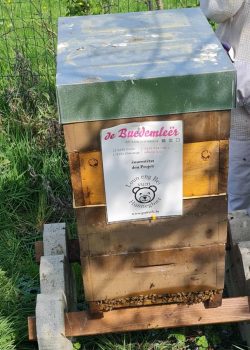

We only harvest honey twice a year.
Respecting the hard work done by our dear hymenoptera, we only harvest honey twice a year – the first one done at the end of May 2022 was 13kg. The second harvest is scheduled for late summer, which is early enough for the bees to replenish their stock for winter – and this second harvest will not collect all the honey in the hive.
The harvested honey will be offered as a birthday gift to our employees as well as to our customers and partners (while stocks last).
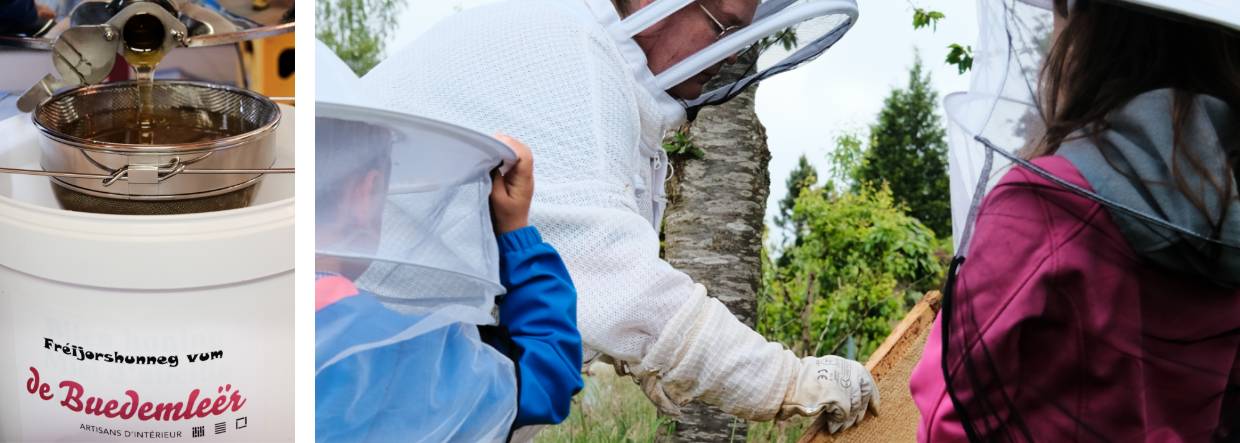

The youngest generation of Buedemleër was able to attend the first harvest of 2022
Why did we make this choice?
If we made the choice to rent a beehive it is of course because we care about nature, but also to be able – at our humble level – to raise awareness about the major role that bees play in the ecosystem of the entire planet, as well as the major perils that their slow disappearance brings year after year.


- about 35% of the world food production depends on pollination.
- 80% of plant species rely on pollination for their survival, reproduction and evolution, and bees play an essential role in the pollination process.
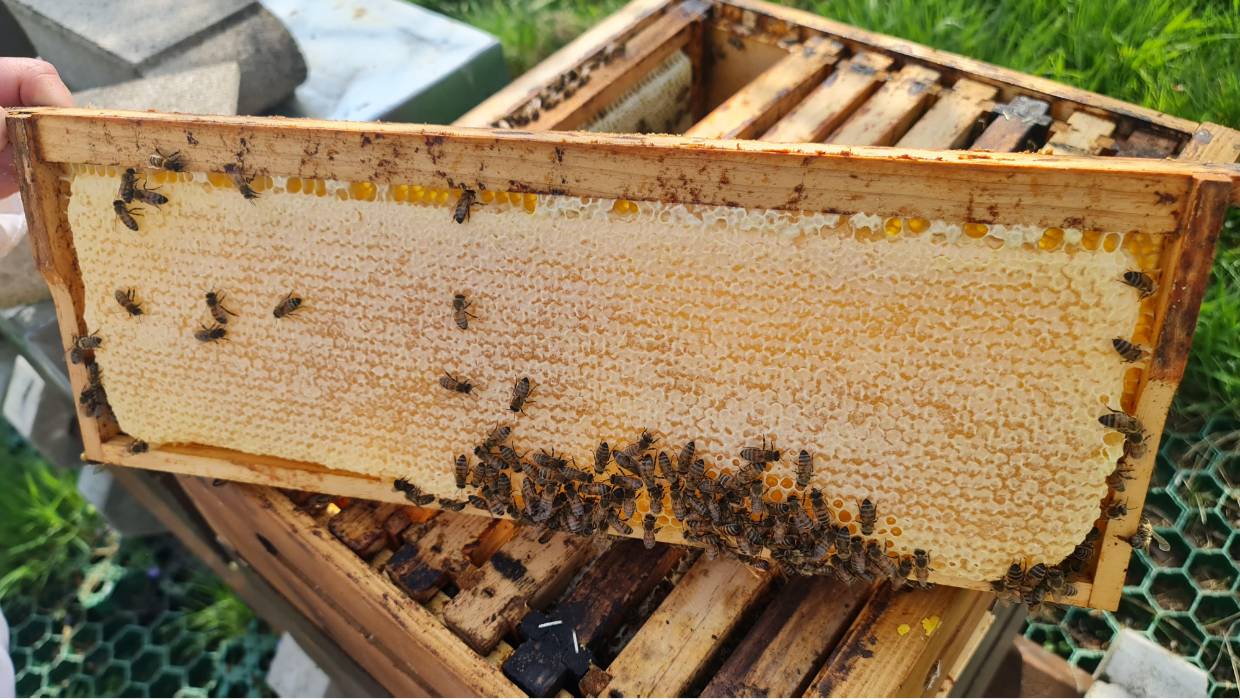

Are you interested in the Guirsch family’s approach?
The Guirsch are beekeepers since 2018, they are the first to offer individuals to rent a beehive in Luxembourg.
What they care about is to:
- promote a local beekeeping activity
- allow consumers to get local honey and also to promote quality products.
- to warn consumers about the dubious quality of cheap products.
If you are:
- a company
- a municipality
- a club, an association…
- an individual
- a school, a halfway house…
And you are interested in:
- supporting nature and bees
- see the work of the beekeeper
- having your own honey
- supporting a local beekeeper
- highlight your ecological responsibility
So, you can rent the bees of the project “loun eng Bei” and at the end of the year you receive your honey. You can even personalize the label of your honey jars on request, which will make an original Christmas gift.
To support a sustainable project and the bee population, you can contact Mr. Guirsch via his facebook page or via the website of Den Hunnegebier.
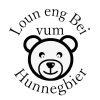

If you want to install a beehive in your garden you must first know that a colony of bees requires attention, maintenance and know-how to ensure their well-being and survival. The website apis.lu will give you more information on this subject and you can even register for free training courses.
According to the beekeeping specialist in Luxembourg, Reichart Andreas, bees especially need “large areas” with lots of flowers to collect their pollen. It is therefore important to renaturalize the countryside and gardens with flowering meadows and not just put in grass. These decisions belong to the politicians, as citizens you can make your concerns known to them by participating in petitions (national or international) or by getting involved with environmental protection associations such as Ouni Pestiziden.
The website of Sicona (Syndicats intercommunaux du Centre & du Sud-Ouest pour la Conservation de la Nature) proposes to those who are interested to discover and carry out actions in the direction of the renaturation of the landscapes, you will also discover on their Facebook page videos for the general public which highlight actions of nature preservation.
Do you want to take concrete action on a personal basis? If you have a plot of land you can contribute to the building with simple gestures, such as: not concreting or paving the garden in front of your house, preferring plants with flowers to hedges and plants without flowers, and if you have the opportunity to plant several trees (it’s even better if they are fruit trees), do not hesitate, in addition to bringing you freshness in summer their production in flowers is much higher than that of simple plants with flowers.
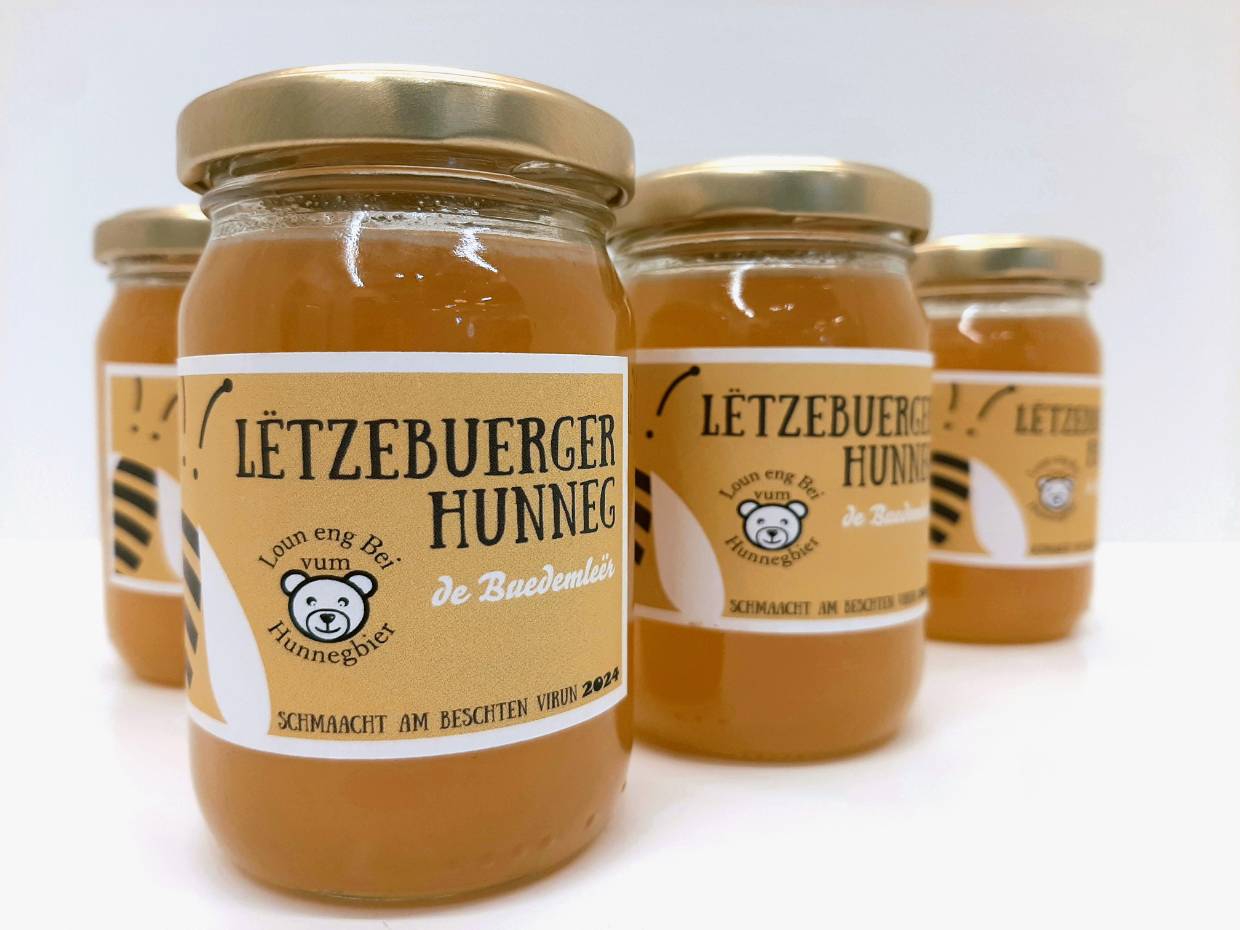

Did you know?
To produce 1 kilogram of honey, the 20,000 to 50,000 bees in a hive make 50,000 trips and visit up to 5,000,000 flowers, i.e. 40,000 km, which is equivalent to going around the world at the equator.
1 kg of honey is equivalent to the energy value of 3 kg of beef or 50 eggs.
Bees born in autumn live for about 6 months, compared to 45 days for those born in spring.
The queen bee lays about 1,500 eggs per day during the peak season and 800,000 eggs during her lifetime.
